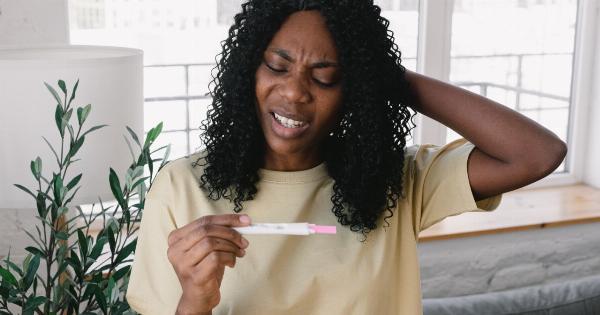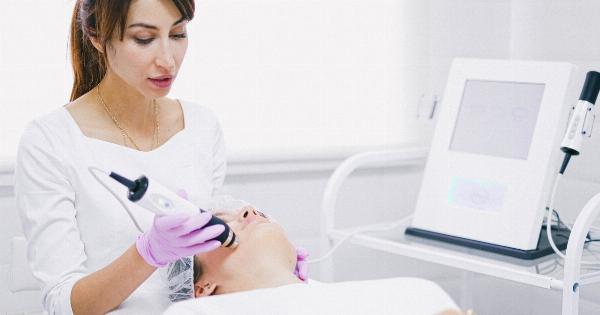Hemorrhoids, also known as piles, are swollen veins in the rectum and anus that can cause discomfort, pain, and bleeding. While hemorrhoids are a common condition, they can be quite bothersome and affect one’s quality of life.
However, with proper care and management, it’s possible to cope with hemorrhoids and alleviate the associated symptoms. This article will provide you with some practical tips on how to effectively cope with hemorrhoids.
1. Maintain Good Hygiene
Proper hygiene is essential for managing hemorrhoids and preventing infections. Clean the anal area gently with mild, unscented soap and warm water after each bowel movement.
Avoid using rough toilet paper or wipes that contain alcohol or perfumes, as they can further irritate the area. Instead, opt for soft, fragrance-free wipes or consider using a bidet or a squirt bottle with lukewarm water to cleanse the area.
2. Use Cold Compresses or Soothing Creams
Applying cold compresses to the affected area can help reduce swelling and discomfort. Place an ice pack wrapped in a clean cloth on the hemorrhoids for 15 minutes several times a day.
Additionally, over-the-counter hemorrhoid creams or ointments containing hydrocortisone or witch hazel can provide temporary relief from itching and pain. Follow the instructions on the packaging and avoid prolonged use of these creams.
3. Increase Fiber Intake
A high-fiber diet can help soften stools and regulate bowel movements, making it easier to pass stool without straining. Include plenty of fruits, vegetables, whole grains, and legumes in your diet.
The recommended daily fiber intake is around 25-30 grams for adults. If necessary, consider taking a fiber supplement, but make sure to increase your water intake as well to prevent constipation.
4. Stay Hydrated
Drinking an adequate amount of water is crucial for preventing constipation and maintaining bowel regularity. Aim to drink at least 8 glasses of water per day and avoid excessive consumption of caffeine or alcohol, as they can dehydrate your body.
Staying hydrated will help keep your stools soft and prevent straining during bowel movements.
5. Practice Good Toilet Habits
Proper toilet habits can greatly reduce the strain on your rectum and lower the risk of hemorrhoid flare-ups. Avoid prolonged sitting on the toilet, as it can increase pressure in the anal area.
When you feel the urge to have a bowel movement, do not delay it. Straining or forcing a bowel movement can worsen hemorrhoids. If you are experiencing difficulties passing stool, try using a small footstool to elevate your feet while sitting on the toilet.
This position helps to align the rectum for smoother elimination.
6. Take Warm Sitz Baths
A warm sitz bath is a shallow bath that covers the hips and buttocks. Soaking in a warm sitz bath for about 10-15 minutes several times a day can help alleviate the symptoms of hemorrhoids, such as itching and inflammation.
Adding Epsom salts or a mild herbal solution to the water can provide additional relief. After bathing, gently pat the anal area dry with a soft towel.
7. Avoid Heavy Lifting
Excessive strain on your abdominal area and pelvic floor muscles can worsen hemorrhoids.
Avoid lifting heavy objects as much as possible, but if you need to lift, remember to bend your knees and use your legs, not your back, to minimize the pressure on your rectal area.
8. Regular Exercise
Engaging in regular physical activity can stimulate bowel movements and help prevent constipation. Moderate exercise, such as walking, swimming, or cycling, can improve circulation, reduce pressure in the lower body, and promote overall well-being.
However, it’s important to avoid exercises that strain or put excessive pressure on the anal area, such as heavy weightlifting or high-impact activities.
9. Seek Immediate Relief for Painful Hemorrhoids
If you experience severe pain, bleeding, or protruding hemorrhoids that do not improve with home remedies, it’s essential to seek medical attention.
A healthcare professional can provide appropriate treatment options, such as rubber band ligation, sclerotherapy, or surgery, to relieve discomfort and eliminate persistent hemorrhoids.
10. Prevent Future Hemorrhoids
Once you have successfully coped with hemorrhoids, it’s crucial to take preventative measures to avoid future occurrences.
Maintaining a healthy lifestyle with a balanced diet, regular exercise, and adequate hydration will promote optimal bowel function. Avoid straining during bowel movements, and maintain good hygiene practices. If you have a sedentary job, make sure to take breaks and move around regularly to promote blood circulation in the anal area.
By following these tips and incorporating them into your daily routine, you can effectively cope with hemorrhoids and minimize discomfort.
However, if symptoms persist or worsen, consult a healthcare professional for a proper diagnosis and treatment plan tailored to your specific condition.































